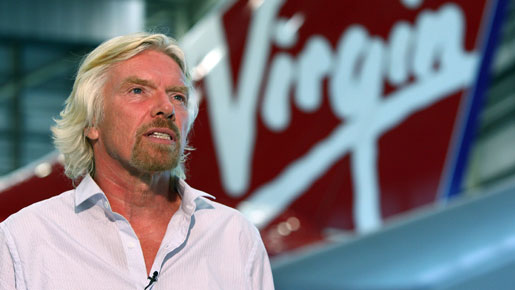
Baroness Susan Greenfield, Sir Richard Branson, Sir Alan Sugar, Sir Bob Geldof and General Colin Powell are just five from the 15 outstanding leaders and innovators drawn from the business, scientific and political arenas who spoke at the 2006 ‘Leaders in London’ International Summit in November. Chaired by Rene Carayol, MBE, the event attracted over 1,200 attendees who gathered to hear the latest ideas and proven practices to apply to their own leadership roles.
Opening speaker Bob Geldof described his personal style as that of a ‘chaotic character’ who had never envisaged himself as a leader – even of himself. His success in mustering such phenomenal support for the Live Aid project stemmed from his own outrage at the economic absurdity and moral repulsiveness of the situation, combined with his natural ability to gain media exposure and position the event in a way that caused people to gather around and participate in an outlet to articulate their rage. He attributed his leadership success to his ability to construct a world into which he fits, where he can articulate ideas and control the agenda, combined with the humility to step aside and acknowledge when he personally can’t take a project any further, and hand it to the enablers who can.
Baroness Susan Greenfield, Neuroscientist and international expert on the brain, spoke about the impact of scientific and technological advances on the brain, envisaging “organisations focusing on doing only what they are best at, outsourcing the rest and networking synergistically with other small companies.” Speaking of the plasticity of the brain and its ability to generate new connections, she pointed out that new technologies of the future may create change. One example is that of London taxi drivers; as a result of their extensive studies when doing ‘The Knowledge’ (they are required to assimilate and recall detailed information about London’s streets) an area of the brain known as the Hippocampus enlarges to be bigger than that of the normal population.
Asked about his leadership abilities, Sir Richard Branson told how he came from a loving family which sought opportunities to praise rather than criticise, and always looked for the best. He has adopted this approach in his businesses, and often promotes people beyond what they would expect, citing an example of the cleaner of Manor Recording studios in Oxford who ended up running 15 studios. The main quality he looks for in leaders is: “People who are good with people. If the person at the top cares about the person cleaning the floor and the people on the switchboard, then everyone comes alive. If the people at the top are not good with people, then it ricochets down and the culture of that organisation is miserable for everyone.”
Sir Alan Sugar gave a question and answer session. Asked about the aggressive leadership style shown in ‘The Apprentice,’ he replied, not unexpectedly, that we shouldn’t believe all we see on TV since the editing is extensive, emphasising that within his core organisation of 80 or 90 people, some have been with him for 30 years, and would not stay if they didn’t like being around him. He mentioned the increasing negativity he sees in business in the past 10 years, telling us that he keeps a mental baseball bat to hit away any negative ideas people put in front of him, and of mistakes, he said:
“Have I made mistakes? The people in this room could live contentedly for the rest of their lives on a smallish percentage of what I have lost in the past.”
Colonel Tim Collins OBE, who earned worldwide fame for his speech to his troops on the eve of the Iraq war, spoke about the leadership lessons business leaders can learn about building unflinching loyalty and motivation, and in contrast, Ricardo Semler, renowned Brazilian entrepreneur and maverick creator of the world’s most unusual workplace, described his approach to management by (O)Mission, unleashing employee potential and letting talent find its place.
The conference was closed by General Colin Powell, former US Secretary of State, who established a new paradigm for leadership excellence. He asserted that “The performance of the organisation is the ultimate measure of the leader” and told the audience: “The essence of leadership is to be trusted. Even if they don’t know how you will achieve something, they trust you enough to follow you.” To end on a lighter, very human note, when asked what he most missed about his job, Colin Powell replied, ‘My plane.’

